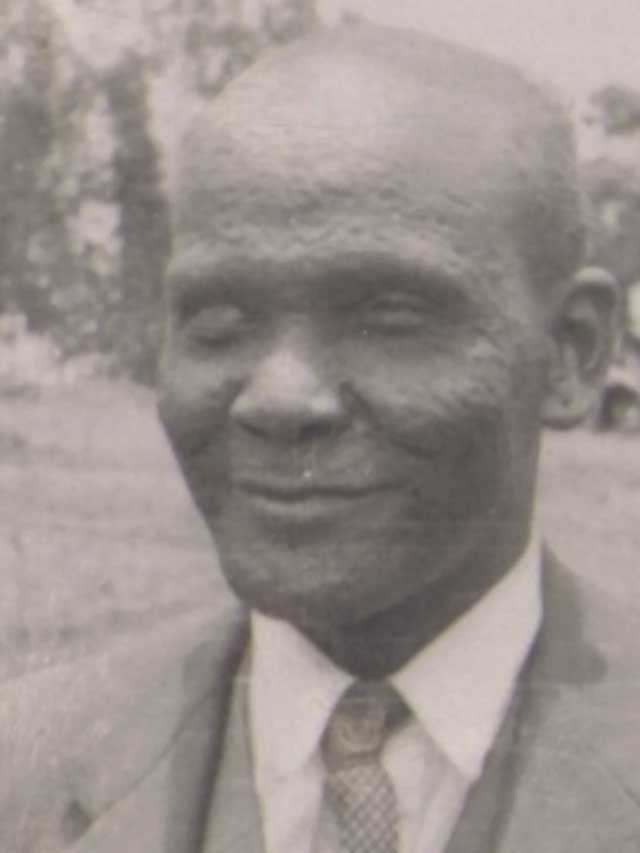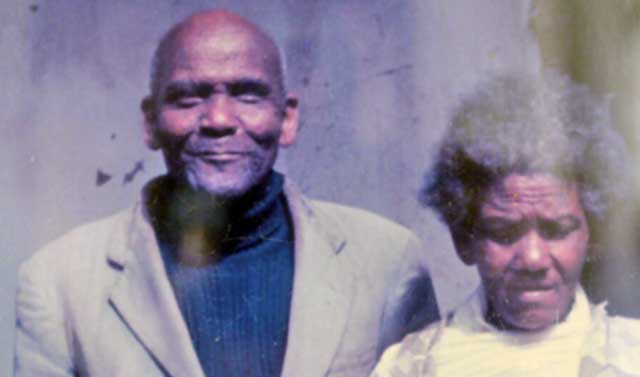[No author found yet for the profile.
Please use the contact form below to get in touch with us.]
Life and ministry
Gidada Solon [Qubee: Gidaada Solon] was born in Aläqa Sotalo, near Sayyoo [today’s Dambi Dolloo] around 1901. When he was 5 years old, he went blind due to smallpox. As a child, Gidada learned much about Oromo folklore and local history from his knowledgeable grandmother. Due to his disability, however, he couldn’t learn a trade and had to rely on begging.
During the Spanish flu in 1919, the American doctor and missionary Thomas Lambie came to Dambi Dolloo. In 1920, Gidada was the first convert. He attended Bible lessons and was particularly good at memorizing Amharic Bibel texts. Gidada later learnt to read Bible texts in Braille. He influenced numerous people in Dambi Dolloo and Burka Badessa (on the trade route to Gambela) to become Protestant Christians in the 1920s.
Gidada Solon worked to challenge the power of traditional healers (qallicha) and the spirits that obsessed them. Together with an evangelistic team he went out in 1930 and encouraged people to put their faith in Jesus Christ instead.
Gidada was ordained in 1940. The Italian authorities accused Gidada Solon and his colleague Mammo Chorqa of being spies for the British and imprisoned them in 1940/41. In the 1950s, Gidada was thrown into prison again. The Ethiopian Orthodox Church regarded the growing Protestant movement as a threat and had a number of their worship places closed and some leaders arrested.
In addition to his pastoral ministry in Wollega, Gidada Solon was a key person in founding the (Presbyterian) Evangelical Church Bethel in 1947 and in the Conference of Ethiopian Evangelical Churches. He also attended the General Assembly of the United Presbyterian Church in Pittsburgh in 1957.
From 1955 until his retirement in 1965 Gidada and his wife lived in Mizan Teferi and worked with the United Presbyterian Mission to evangelize the Bench ethnic group. Afterwards, the couple returned to Dambi Dolloo. Several of their children became well-known, e.g. Nagaaso Gidada, who was President of the Federal Democratic Republic of Ethiopia from 1995 to 2001. Gidada Solon passed away in 1977.
Marianne Nilsson writes (chapter 2 in forthcoming book):
“Some of the songs [in Macaafa Faarsa] were translations from English and others were new-composed lyrics sung on traditional Oromo melodies, many of them in a responsorial form. The songs were composed before the Italian occupation of Ethiopia (1936-1941) by Qes Gidada, Qes Mamo and other Oromo” ministers.
Songs in hymn book
Macaafa Faarsa (1967; 1980)
Nr. _ _ _
Pictures

(adapted from www.gidada.org)

(adapted from www.gidada.org)
Further reading
Sources
Gidada Solon. The Other Side of Darkness, ed. by Marion Fairman. New York: Friendship Press, 1972. [German translation published by Köppe Verlag in 2003]
Encyclopedic entries
Balisky, Paul E. “Solon, Gidada”, [Online] Dictionary of African Christian Biography. 2004. [View online]
Launhardt, Johannes. “Gidaada Solon”, in Encyclopaedia Aethiopica, vol. 2, ed. S. Uhlig, p. 785-86. Wiesbaden: Harrassowitz, 2005.
Other secondary literature
Arén, Gustav. Envoys of the Gospel in Ethiopia: In the Steps of the Evangelical Pioneers 1898-1936. Stockholm: EFS förlaget; Addis Ababa: The [Ethiopian] Evangelical Church Mekane Yesus, 1999. [See p. 364, 378, 380-81, 391-92, 395-96, 498, 509; view online]
Debela Birri. Divine Plan Unfolding: The Story of Ethiopian Evangelical Church Bethel. Minneapolis, MN: Lutheran Univ. Press, 2014.
Nilsson, Marianne. Chapter 2 in forthcoming book on Ethiopian Gospel Music.